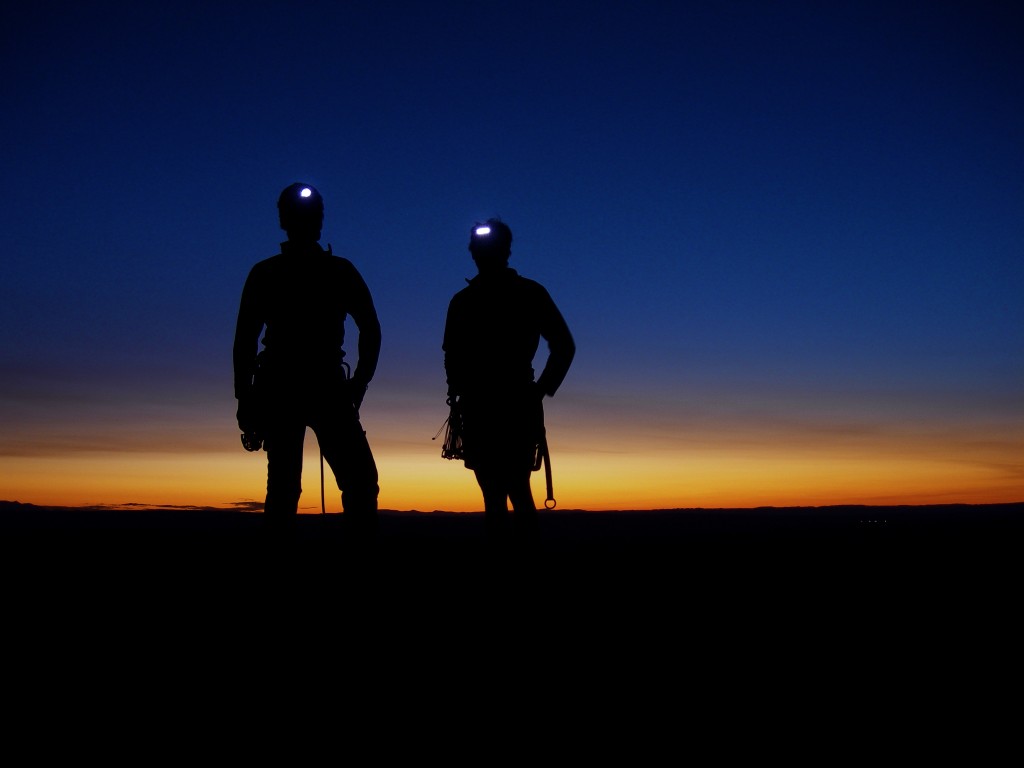Plato:
The World Is the Handiwork of a Mind
"Unlike nearly all of Aristotle, this dialogue [
Timaeus] is known by theologians throughout the early centuries of the Christian era and right through the Dark Ages." p 2
PT.
"Plato also astounded the Apologists and the early Church Fathers. When they encountered Plato's creation story in the
Timaeus, they said that Plato either had read Moses... or had received his knowledge by divine revelation." p 1
PT.
"They did not feel threatened by Plato... the early Christian thinkers were delighted to find a witness to Christian truth among the Greeks." p 1
PT.
There is a cause (an ineffable creator):
"Now then, in my opinion, one must first distinguish the following. What is it that always is and has no becoming; and what is it that comes to be and never
is?" p 308, 28
Timaeus.
"Everything that comes to be, of necessity comes to be by some cause; for apart from a cause, it's impossible for anything to have a coming to be." p 308, 28
Timaeus.
"The first thing about it [the cosmos] one must investigate is the very thing set down at the beginning whenever one has to investigate anything.... It has come to be; for it is visible and touchable and has body, and all such things are sensed; and things that are sensed, since they're grasped by opinion accompanied by sensation, came to light as coming to be and begotten. And again, for what comes to be, we claim that it's necessary that it come to be by some cause. Now to discover the poet and father of this all is quite a task, and even if one discovered him, to speak of him to all men is impossible." p 308, 28b-28c
Timaeus.
"There's every necessity that this cosmos here be the likeness of something." p 308, 29b
Timaeus.
"Now accounts of what's abiding and unshakable and manifest with the aid of intellect are themselves abiding and unchanging; and to the extent that it's possible and fitting for accounts to be irrefutable and invincible, they must not fall short of this. But as for accounts of something made as a likeness of something else--since it is a likeness--it is fitting that they, in proportion to their objects, be likenesses." p 309, 29c
Timaeus.
"The Genesis story of creation and the rest of the Bible appear at first sight to be anthropomorphic... But early Christian theologians... were quick to point out that the Bible, like Plato, stresses that the source is ineffable.... The language of Scripture is an accommodation to our limited capacities." p 15-16
PT.
Plato's example of immutability. "An idea or concept never changes. It comes into people's minds at times and at other times is not thought about, but the idea or concept itself is not born nor does it decay. The number two, for example, is not born, nor made, and it will not die or rot. It is always the same." p 3
PT.
The beginning of time:
"Until heavenly bodies move... there are no days and nights or years." p 6
PT.
"
Augustine was influenced by both Plato's view that time is created with the universe and by Plotinus's notion that time is a
mental phenomenon.... The Manichaeans asked, 'If God created the world and created it out of nothing, why did God create it at the time God did and not sooner or later? What was God doing before the world was created?' Augustine points out that it is true to say that the universe
began, as Genesis reveals, but the universe did not begin
in time. Time is created
with the creation of all things. So there is no time before the universe began." p 7
PT.
"In God there is nothing that passes away or comes to be. God's word of creation does not pass away; for if it did, all created things would pass away too. That word abides forever; it is spoken eternally. It is not subject to time." p 8
PT.
"Because God is eternal, we cannot [fully] comprehend the divine in its essence.... Temporal categories are foreign to the divine nature." p 8
PT. "In Genesis it is the primacy of God that is affirmed; and this is affirmed by saying that only God did
not begin in contrast to all else that did begin." p 11
PT.
"These views... on time... paves the way for Augustine to develop a Christian view of history, in which events such as creation, the call of Israel, and the incarnation give direction and purpose to human history." p 8
PT.
(Intelligent) Creation:
"The Milesians shared the traditional Greek religious assumption that the universe was not
made but was
born--that is, the basic analogy was that of giving birth rather than that of human construction, on the lines of a craftsman." p 11
PT. Plato was on the "'right' side of that division by Christian thinkers." He claimed that the world was made instead of birthed. "Birth suggests blind reproduction whereas 'human making' out of things of nature suggests intelligence and purpose.... For Plato, the inadequacy of natural causes as explanations of nature's operations is that they neglect the beauty and goodness of the visible world order as a whole and in every detail. And Plato's ground for the conviction that the world is a handiwork of intelligence is largely that he thinks nature's order resembles the activity of human intelligence." p 16
PT.
But, "It is clear that in this creation story [
Timaeus] there is no creation ex nihilo. It is a story of order being brought to preexisting material" by the "demiurge" or "craftsman." p 3
PT. "But the craftsman only
copies the world of Forms, following a ready-made blueprint. This work is thus not creative but rather imitative. In contrast to this, the Genesis account is about a creative, inventive act. There is nothing ready-made to be imitated." p 8-9
PT.
"I will only lay it down [not argue for it] that the products of nature, as they are called, are works of divine art, as things made out of them by man are works of human art." 265c, e of Plato's
Sophist p 10
PT.
"The world is not simply the way it is, but the way an agent wants it to be." p 10
PT. "The story exhibits the conviction that natural things are the way things are intended to be... and not the way they simply happen to be by chance or necessity." p 11
PT. "The world is the handiwork of mind and that it is as it is because a mind intended it to be so." p 15
PT.
"Now let us say through what cause the constructor constructed becoming and this all. Good was he, and in one who is good there never arises about anything whatsoever any grudge; and so, being free of this, he willed that all things should come to resemble himself as much as possible. That this above all is the lordliest principle of becoming and cosmos one must receive, and correctly so, from prudent men." p 309, 29e
Timaeus.
"Clearly, for Plato this world is good, even though it is not perfect. (This is true of the Bible as well: the universe is good, indeed very good..." p 4
PT.
Plato attempted to explain that, "True morality is thus not the product of convention or arbitrary enactment of human will; rather, the virtuous individual is a counterpart in miniature of the order and harmony of the cosmos." Allen suggests that, "This conviction of a hierarchy... became the basis of natural law... and has deeply influenced Christian conceptions of morality, society, and politics. It is the rejection of a hierarchy of value by modern science in the seventeenth century that led to the need to find new foundations for society, the state, and morality in the modern period." p 2
PT.
"If nature is similar to human handiwork, then nature can be used as a support for seeking the best order for society, the state, and the individual because humanity, like everything else, has a place in the general order." p 17
PT.
"The ease with which Plato's story of the mind making a visible world can be rendered superfluous by an alternative account of the order of nature shows how different Genesis is from the
Timaeus [because Genesis holds a more secure argument and reason]. The context of Plato's creation story is that of a search for a rational explanation of nature's workings.... Reasoned arguments to understand phenomena may lead in the direction of a
Timaeus-like creation story, in which nature is to be regarded as being the way it is because it is mindlike in its operations. But reasoned arguments may lead to such a story being rendered useless by an account such as Aristotle's...
The Christian belief in God the Creator does not arise out of an attempt to deal with the problems with which Plato and Aristotle wrestled.... It rests on a belief in God's initiative in calling a people and in God's continuing dealings with them. Awareness of divine sovereignty over all things and God's independence from all things led and leads to an awareness of the dependence of all things on God. The search for a rational account of nature's operations is not the origin or the ultimate basis for the Christian belief in the Maker of heaven and earth." p 17-18
PT.
"On the other hand, the creation, as we mentioned in the introduction, bears marks of its origin from the hand of God. The reflections of great philosophers such as Plato and Aristotle on the order of nature are instructive. They supply us with valuable data as we try to form an estimate of the
extent of these marks and
how well the mind can discern them. Philosophical reflection on the order of the universe is thus of interest to theology." p 18
PT.
"Because it takes faith and the Bible to read nature's revelation, the contemplation of nature as a great gift and a revelation of God's power, wisdom, and goodness is clearly not an attempt to prove God's existence from nature." But, perhaps the other way around as someone like Descartes would say: to prove natures existence by knowing God. p 18
PT.
...
"For all these very reasons, he begat it a happy god." p 311, 34b
Timaeus.
"And God saw everything that he had made, and behold, it was very good." Genesis 1:31.


































